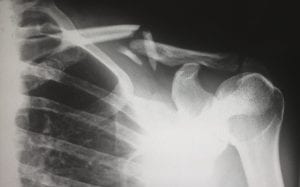In Michigan, there is now one less barrier to OUD treatment.
The Michigan Department of Health and Human Services recently got rid of an administrative barrier tied to seeking treatment for opioid use disorder (OUD) as well as other medical conditions. The state removed long-held “prior authorization” requirements for medications used to treat the disorder, including buprenorphine, as part of medication-assisted treatment (MAT). MAT, when coupled with counseling or behavioral therapy, is considered an optimal solution for addressing OUD.
Without this barrier, a primary care physician (PCP) can prescribe buprenorphine for people with addictions to use at home, “significantly increasing treatment access,” according to the U.S. Substance Abuse and Mental Health Services Administration (SAMHSA). And, according to the National Institute on Drug Abuse, “Studies have shown medication-assisted treatment reduces opioid use, deaths, crime and infectious diseases.”
Taking away insurance barriers is “a major step forward,” said Dr. Debra Pinals, medical director for the Michigan health department’s behavioral health and forensic initiatives. Before the change, individuals suffering from OUD would first have to get approval from an insurance carrier to be prescribed a specific medication or simply not be reimbursed.

“It’s a very inefficient use of our time,” said Dr. Bobby Mukkamala, an ear, nose and throat specialist in Flint, of the previous barrier to treatment for those requiring CT scans. “It’s really just a way to delay care in the hopes that some people will give up and just not do it.”
“On one side, the state is fiscally responsible for Medicaid funding and during a one-year period ending June 30, doctors prescribed buprenorphine products for 15,295 Medicaid beneficiaries,” according to the state health department. However, data released in November reveals that deaths from opioid overdoses 1999 and 2018 increased from 115 to 2,036 deaths annually.
“State officials learned that 21 other states already have removed prior authorization requirements for medication-assisted treatment drugs in their Medicaid plans with no significant signs of misuse,” Pinals said, adding, “Ultimately the need to address the opioid epidemic and the promise of safe treatment tipped the balance toward removing prior authorization for these medications.”
Danielle Gertz, a nurse practitioner specializing in addiction treatment at the Western Wayne Family Health Centers, frequently treats patients suffering from opioid withdrawal. “My patients will tell you that dopesick is the awfulest feeling you can have,” Gertz said. Before the insurance change, Gertz would have to send patients home to wait a day or two to fill prescriptions, and in that time, they would often get so sick they would turn to dealers instead.
“There’s such a small window of time to act,” agreed Jessica Parsil, behavioral health director at the Family Medical Center of Michigan. “Patients must be physically, emotionally and mentally ready — a state of being that comes and goes quickly, especially with addiction. If you have to wait two or three days for an insurance company to approve medication, we may lose that window of time. We may lose them.”
“The state will monitor Medicaid claims data to determine how the medications are being used, flag any outliers that might indicate a clinician who is over-prescribing, and watch for any disparities in care and access,” Pinals explained.
Even though overdose deaths involving the use of opioids and other drugs dropped in 2018 for the first time in six years with new state policies in place, African American drug deaths increased. There’s still a long way to go, but this is one small step in the right direction.


Join the conversation!